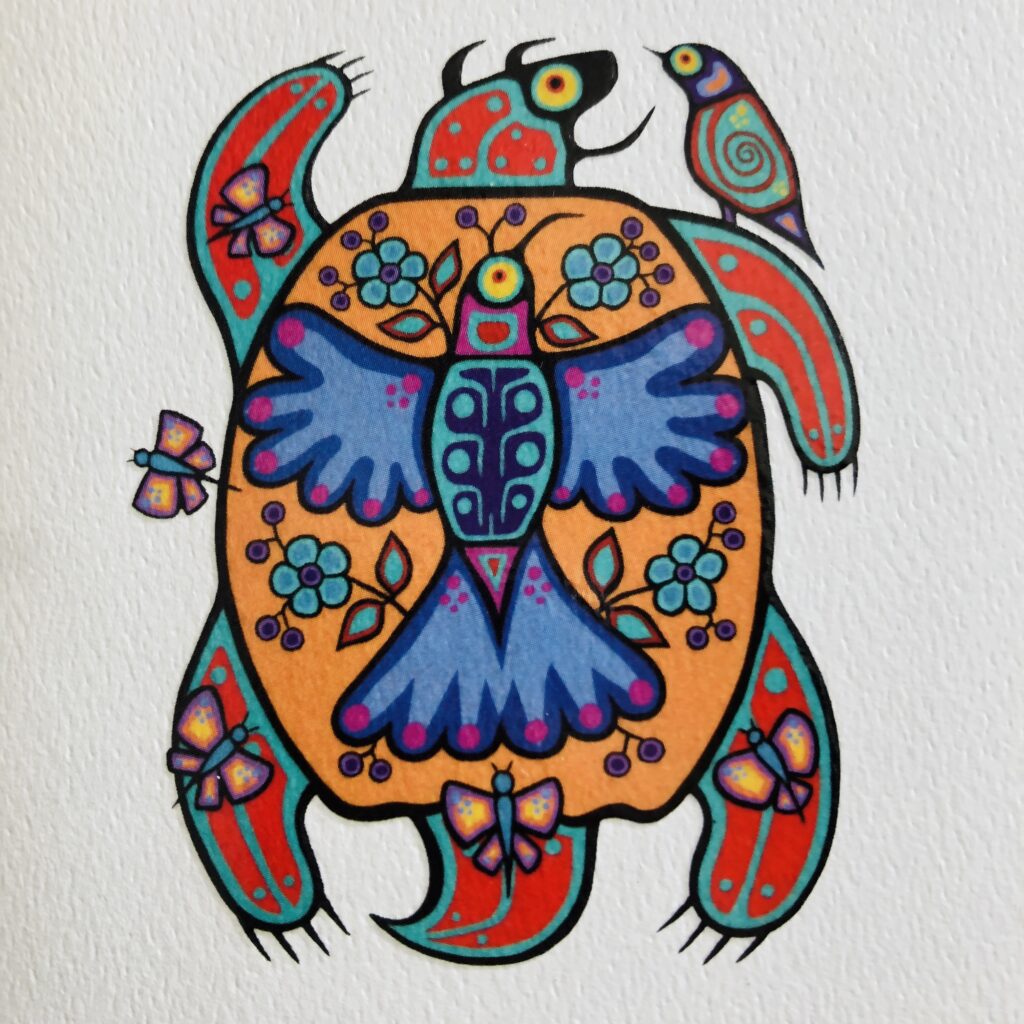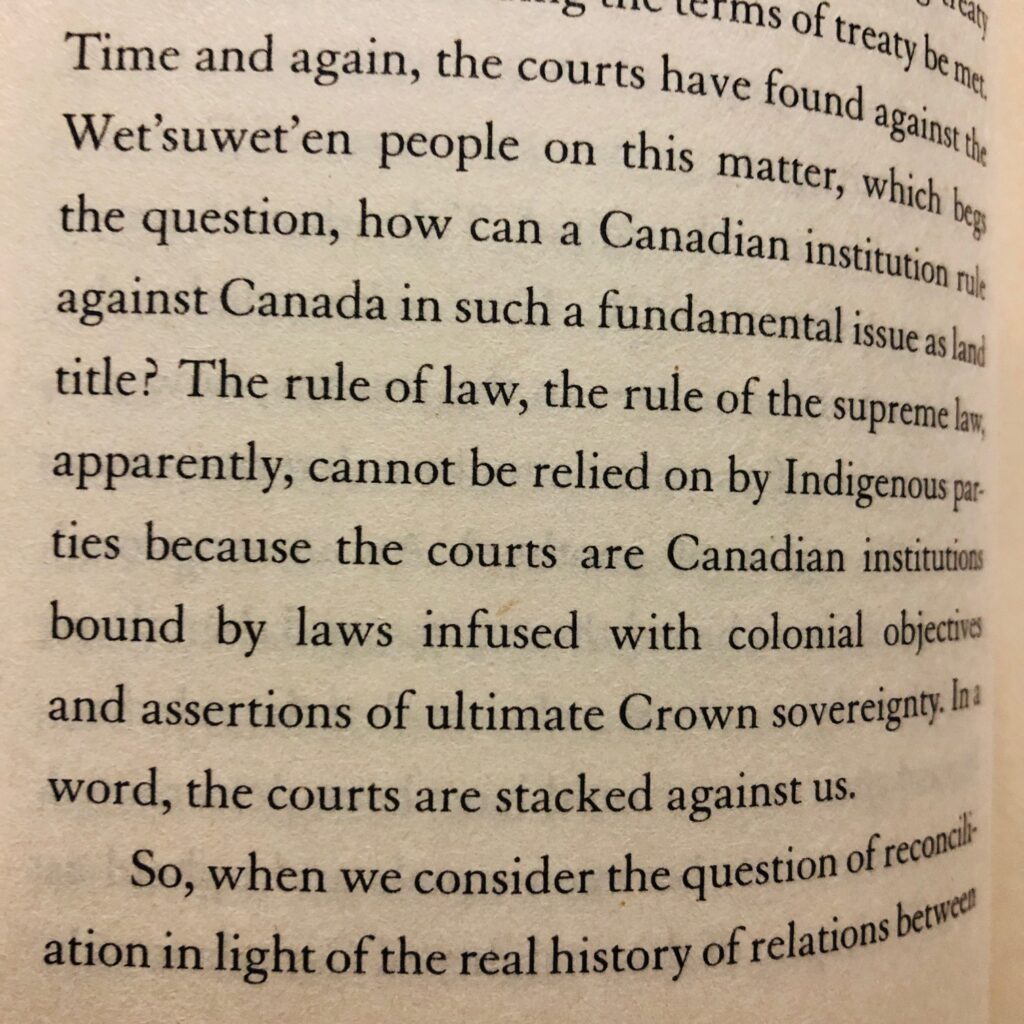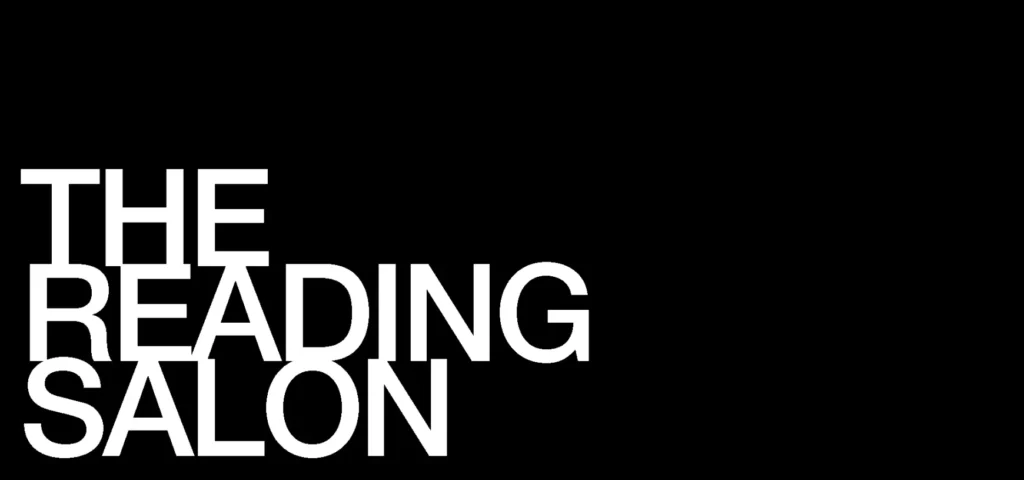Seven Conversations About Indigenous Life In Canada
by Michelle Good.
Whether you consider yourself a colonialist settler, or unsure of what that even means Truth Telling: Seven Conversation About Indigenous Life In Canada by Michelle Good makes for an excellent primer. It’s not new information that our histories with Indigenous communities across Turtle Island, also known as North America, have been shoddy at best. This collection of essay’s structures the horrific pillaging of Indigenous people that were here before “Canada” was even a thing. So if you know little to nothing about Canada’s real history or you’re an expert, this book has something in it for you.
Truth Telling is a quick read yet it provides important insights into what has historically taken place and how reconciliation may not be the big solution that many people think it is.

You are likely familiar with the reading of Land Acknowledgments before a night at the theatre, but perhaps less familiar with why this is a significant step forward in the reconciliation process. That being said, Land Acknowledgments are very often read by white colonialist settlers and their connection to the words and meaning often hold little to no significance to the listener. So why do them at all? Because it matters that we, as a nation of peoples, listen to, and understand the true histories of our country, particularly Canada or Kanata, meaning population or villages which comes from the Huron-Iroquois people who inhabited this land years before colonialism and the establishment of settler villages and towns such Tkaronto, now known as Toronto.

…because the courts are Canadian institutions bound by laws infused with colonial objectives… In a word, the courts are staked against us.
-Michelle Good, from “Truth Telling”
Truth Telling looks at Canada from many angles including the plethora of failed treaties, the pipeline blockades as well as the true history of Prime Minister John A. Macdonald’s residential school system, which despite what white history books say, was not intended to educate and bolster up Indigenous communities but rather an intentional move to dismantle Indigenous peoples customs, families and the passing of inter-generational knowledge. No wonder there has been such a loud cry to remove Macdonalds’ statue’s throughout Canada. These proposed changes include demands to re-write the history books so that they are representative of what actually happened in our recent histories. Besides, what good is a history book or encyclopedia that depicts our history as some wish it had gone down instead of how it really did play out?
A big take-away from Truth Telling is how Canada’s history has been sold to us as a false framework of white settler ideologies which couldn’t be farther from the truth. The framework from which our current colonialist school system is based upon has been a key element in indoctrinating non-indigenous people into a system of belief akin to a fairy tale.
Those of my generation grew up on Cowboy and Indian TV shows and movies that perpetrated the idea of the ultimate superiority of white settlers.
-Michelle Good, from “Truth Telling”
Truth Telling” also examines the recent history of missing Indigenous women and girls and exposes the a very intentional in-action on the part of government and the authorities. It goes so far as to provide concrete examples of how the higher-ups, especially the Pope and Catholic Church, sought to cover up the injustices forced upon these women and children.
This why we, as new Canadian’s, need to be able to appreciate all of our histories, as they really went down, and begin to envision a day when this country might consider trading in our Canada Day Fireworks for a celebration of those who thrived off of this land long before we came along to destroy it. •
Raymond Helkio writes reviews for The Reading Salon and is a theatre artist, writer and poet living on the edge of insanity. Get in touch.

